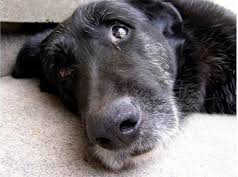
Usually caloric needs are reduced by about 20% compared to an adult dog of the same weight.
As a dog gets older, it will always show a lower appetite due to a decrease in metabolism, due to the onset of dental or oral problems and to lesser olfactory and gustatory perception.
The diet must focus on the quality of the nutritional elements: proteins but also lipids and a correct intake of fibers must be ensured.
In addition, particularly digestible foods should be chosen. An additional dietary vitamin intake should be provided, especially if you opt for a home diet by consulting your veterinarian first.
In case of dry or wet food intake, the older dog should be "indulged" by providing him with a welcome food.
Even for the elderly dog, meals should be divided into two times, morning and evening. And lifestyle will also change by reducing physical activity, without completely eliminating it. Obesity would be encountered, which together with cardio-vascular and kidney diseases constitutes one of the major risk factors.